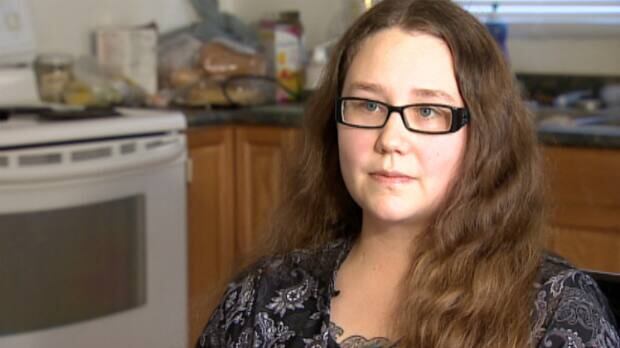Mom denied benefits while on leave seeks compensation
Calgary woman in $450M class-action lawsuit for EI sickness benefits
A Calgary woman who is part of a class-action lawsuit is calling on the federal government to compensate mothers such as herself who were denied sickness benefits while on parental leave.
After giving birth to her son in 2010, Carissa Kasbohm was in and out of hospital for another three months to fight a rare blood condition called TTP.
"My immune system was attacking any of my healthy cells…Because I was sick, I couldn't be a parent. I couldn't do anything," she said.
Kasbohm says she was told she wasn't eligible for employment insurance sickness benefits because she was on maternity leave.
"It was devastating," she said. "It would have helped us a lot."
The $450-million class-action lawsuit was filed by Toronto-based lawyer Stephen Moreau, although it must be certified by a court to proceed. None of the claims have been proven in court.
The government had amended EI legislation in 2002 so working women who fall ill while on leave are eligible for benefits, but the class action's statement of claim suggests the EI Commission failed to fully implement the changes that were unanimously adopted by Parliament.
"The Commission incorrectly adopted 'availability to work' criteria to 2002 amendment claims such that no claimant who made a sickness leave claim while on parental leave would be deemed by the Commission to be sufficiently 'available for work' and, thus, no claimant would ever qualify for sickness benefits," the claim states.
Could affect 60,000 mothers
Moreau said this lawsuit could affect an estimated 60,000 mothers whose EI sickness claims have been denied since 2002.
"When a person is on maternity [or] parental leave and falls ill, they likely increase their time off work," Moreau said in an email.
"EI is about paying people who are off work because of, in this case, illness. So when a person like Carissa is working and paying EI premiums, and then her absence from work is made longer by the sickness, why should she not claim the longer period?"
He said it's like when a house burns down, no one questions a homeowner's claim for compensation, because they paid for the insurance.
"The homeowner paid a bit of premium just for that, as did millions of other homeowners who will never see a dime from their insurance companies, but we never call the homeowner a person sucking money from 'the system.' … They paid for the insurance. Same with Carissa and Jenn."
Moreau said it's not welfare, because Kasbohm paid to insure against illness and unemployment more generally.
Last year, the federal government introduced more amendments to EI benefits through Bill C-44.
It provides up to 15 weeks of benefits through EI, meaning workers can either pause their parental leave to take the sickness leave, or take the sickness leave once the parental leave is up. So if Kasbohm had applied after the change, she could receive up to 65 weeks leave and 65 weeks of benefit, not a 50-week leave where she would get double benefits for 15 out of those 50 weeks.
Another Calgary mother part of lawsuit
But the recent changes won't help parents like Kasbohm, as the changes are not retroactive.
Now Kasbohm is hoping for a positive outcome in court, and she is not alone.
Jennifer McCrea, another Calgary mother, was diagnosed with breast cancer while on a flex parental leave last July. The flex leave allowed her to work periodically.
"EI allows her to do that, to earn a bit extra here and there to a point [and] if she overearns, she pays some monies back to EI," said Moreau.
But McCrea’s claim was denied two months after being diagnosed.
"So when she got sick in the middle of her parental leave, this prevented her from doing that on-and-off-again work and from, of course, getting paid to do so. So there is another example of what EI is all about: support during unemployment and especially support for people who lose something due to an illness."
The Calgary mothers were inspired by Natalya Rougas’s precedent-setting case last summer. She was awarded the maximum 15 weeks of sick benefits in addition to her combined 50 weeks of maternal and parental benefits after being diagnosed with breast cancer in 2010.
She was awarded roughly $6,000, or $400 a week.
